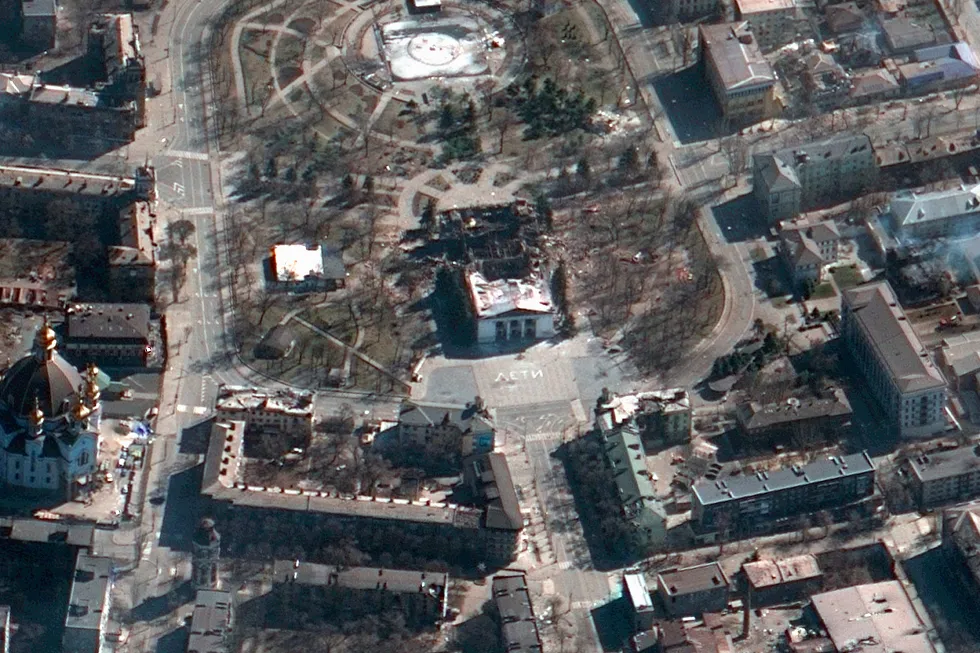B+ tree
B+ trees are ordered collections of key-value pairs, sorted by key.
This is a fast B+ tree implementation, largely compatible with the standard Map, but with a much more diverse and powerful API. To use it, import BTree from 'sorted-btree'.
BTree is faster and/or uses less memory than other popular JavaScript sorted trees (see Benchmarks). However, data structures in JavaScript tend to be slower than the built-in Array and Map data structures in typical cases, because the built-in data structures are mostly implemented in a faster language such as C++. Even so, if you have a large amount of data that you want to keep sorted, the built-in data structures will not serve you well, and BTree offers features like fast cloning that the built-in types don't.
Use npm install sorted-btree in a terminal to install it in your npm-based project.
Ukraine is still under attack
I'm writing this on March 24, 2022: the one-month anniversary of the full-scale invasion of Ukraine.
This is the city of Mariupol, which Russia badly damaged after cutting off electricity, water and heat on March 1. Pre-war population: 431,859. Do you see any military targets here? No, these are homes that many people still live in. Russia has even made it dangerous to leave. An official told NPR: 'When the people organised in evacuation points, they [Russians] started attack on evacuation points. Not all the city. Just evacuation points.'
Officially, as of 9 days ago, 2,400 civilians had been killed, but this is said to be an underestimate and the actual number of murders may have been as high as 20,000... nine days ago.
Now, I'm just a lowly programming-language designer with no real following on Twitter, so I'm venting here.
I have donated to the Red Cross in support of Ukraine, and also to AVD-Info and Meduza in order to help give Russians access to information (the Russian internet is heavily censored, and independent media are banned). For more donation ideas, see here. Personally, I would like people to ask their government to offer large rewards to those who desert from the Russian military (plus large rewards for delivering Russian military hardware to Ukraine). The free world is already spending billions of dollars on military aid to Ukraine, but buying out soldiers can be cheaper than killing them. For talented Russian professionals, rewards should be offered for leaving Russia. Bring a brain drain to Putinland.
Without electricity, reports from Mariupol have been limited, but certainly there is enough information to see that the situation is very bad.
Here you can see the famous Donetsk Academic Regional Drama Theatre, labeled "дети" ("children") in huge letters, which held over 1,000 civilians. Russia bombed it anyway.
For more images and stories from Mariupol, see here.
Meanwhile, I hope you don't live in an apartment in Borodyanka, near Kyiv...
Or in these other places...
Edit: an image from Kharkiv was flagged as "in violation of the npm Service's Acceptable Use rules" but serves as a reminder that the direct death toll caused by the invasion will probably exceed 100,000 in 2022 alone.
What's that? You just wanted a B+ tree? Well, you're in for a treat.
Features
- Requires ES5 only (
Symbol.iteratoris not required but is used if defined.) - Includes typings (
BTreewas written in TypeScript) - API similar to ES6
Mapwith methods such assize(), clear(),forEach((v,k,tree)=>{}), get(K), set(K,V), has(K), delete(K), plus iterator functionskeys(),values()andentries(). - Supports keys that are numbers, strings, arrays of numbers/strings,
Date, and objects that have avalueOf()method that returns a number or string. - Other data types can also be supported with a custom comparator (second
constructor argument). - Supports O(1) fast cloning with subtree sharing. This works by marking the root node as "shared between instances". This makes the tree read-only with copy-on-edit behavior; both copies of the tree remain mutable. I call this category of data structure "dynamically persistent" or "mutably persistent" because AFAIK no one else has given it a name; it walks the line between mutating and persistent.
- Includes persistent methods such as
withandwithout, which return a modified tree without changing the original (in O(log(size)) time). - When a node fills up, items are shifted to siblings when possible to keep nodes near their capacity, to improve memory utilization.
- Efficiently supports sets (keys without values). The collection does
not allocate memory for values if the value
undefinedis associated with all keys in a given node. - Includes neat stuff such as
Rangemethods for batch operations - Throws an exception if you try to use
NaNas a key, but infinity is allowed. - No dependencies. 19.8K minified.
- Includes a lattice of interfaces for TypeScript users (see below)
- Supports diffing computation between two trees that is highly optimized for the case in which a majority of nodes are shared (such as when persistent methods are used).
Additional operations supported on this B+ tree
- Set a value only if the key does not already exist:
t.setIfNotPresent(k,v) - Set a value only if the key already exists:
t.changeIfPresent(k,v) - Iterate in backward order:
for (pair of t.entriesReversed()) {} - Iterate from a particular first element:
for (let p of t.entries(first)) {} - Convert to an array:
t.toArray(),t.keysArray(),t.valuesArray() - Get pairs for a range of keys ([K,V][]):
t.getRange(loK, hiK, includeHi) - Delete a range of keys and their values:
t.deleteRange(loK, hiK, includeHi) - Scan all items:
t.forEachPair((key, value, index) => {...}) - Scan a range of items:
t.forRange(lowKey, highKey, includeHiFlag, (k,v) => {...}) - Count the number of keys in a range:
c = t.forRange(loK, hiK, includeHi, undefined) - Get smallest or largest key:
t.minKey(),t.maxKey() - Get next larger key/pair than
k:t.nextHigherKey(k),t.nextHigherPair(k) - Get largest key/pair that is lower than
k:t.nextLowerKey(k),t.nextLowerPair(k) - Freeze to prevent modifications:
t.freeze()(you can alsot.unfreeze()) - Fast clone:
t.clone() - Compute a diff between two trees (quickly skipping shared subtrees):
t.diffAgainst(otherTree, ...) - For more information, see full documentation in the source code.
Note: Confusingly, the ES6 Map.forEach(c) method calls c(value,key) instead of c(key,value), in contrast to other methods such as set() and entries() which put the key first. I can only assume that they reversed the order on the hypothesis that users would usually want to examine values and ignore keys. BTree's forEach() therefore works the same way, but there is a second method .forEachPair((key,value)=>{...}) which sends you the key first and the value second; this method is slightly faster because it is the "native" for-each method for this class.
Note: Duplicate keys are not allowed (supporting duplicates properly is complex).
The "scanning" methods (forEach, forRange, editRange, deleteRange) will normally return the number of elements that were scanned. However, the callback can return {break:R} to stop iterating early and return a value R from the scanning method.
Functional methods
- Get a copy of the tree including only items fitting a criteria:
t.filter((k,v) => k.fitsCriteria()) - Get a copy of the tree with all values modified:
t.mapValues((v,k) => v.toString()) - Reduce a tree (see below):
t.reduce((acc, pair) => acc+pair[1], 0)
Persistent methods
- Get a new tree with one pair changed:
t.with(key, value) - Get a new tree with multiple pairs changed:
t.withPairs([[k1,v1], [k2,v2]]) - Ensure that specified keys exist in a new tree:
t.withKeys([k1,k2]) - Get a new tree with one pair removed:
t.without(key) - Get a new tree with specific pairs removed:
t.withoutKeys(keys) - Get a new tree with a range of keys removed:
t.withoutRange(low, high, includeHi)
Things to keep in mind: I ran a test which suggested t.with is three times slower than t.set. These methods do not return a frozen tree even if the original tree was frozen (for performance reasons, e.g. frozen trees use slightly more memory.)
Examples
Custom comparator
Given a set of {name: string, age: number} objects, you can create a tree sorted by name and then by age like this:
// First constructor argument is an optional list of pairs ([K,V][])
var tree = new BTree(undefined, (a, b) => {
if (a.name > b.name)
return 1; // Return a number >0 when a > b
else if (a.name < b.name)
return -1; // Return a number <0 when a < b
else // names are equal (or incomparable)
return a.age - b.age; // Return >0 when a.age > b.age
});
tree.set({name:"Bill", age:17}, "happy");
tree.set({name:"Fran", age:40}, "busy & stressed");
tree.set({name:"Bill", age:55}, "recently laid off");
tree.forEachPair((k, v) => {
console.log(`Name: ${k.name} Age: ${k.age} Status: ${v}`);
});reduce
The reduce method performs a reduction operation, like the reduce method of Array. It is used to combine all keys, values or pairs into a single value, or to perform type conversions conversions. reduce is best understood by example. So here's how you can multiply all the keys in a tree together:
var product = tree.reduce((p, pair) => p * pair[0], 1)
It means "start with p=1, and for each pair change p to p * pair[0]" (pair[0] is the key). You may be thinking "hey, wouldn't it make more sense if the 1 argument came first?" Yes it would, but in Array the parameter is second, so it must also be second in BTree for consistency.
Here's a similar example that adds all values together:
var total = tree.reduce((sum, pair) => sum + pair[1], 0)
This final example converts the tree to a Map:
var map = tree.reduce((m, pair) => m.set(pair[0], pair[1]), new Map())`
Remember that m.set returns m, which is different from BTree where tree.set returns a boolean indicating whether a new key was added.
editRange
You can scan a range of items and selectively delete or change some of them using t.editRange. For example, the following code adds an exclamation mark to each non-boring value and deletes key number 4:
var t = new BTree().setRange([[1,"fun"],[2,"yay"],[4,"whee"],[8,"zany"],[10,"boring"]);
t.editRange(t.minKey(), t.maxKey(), true, (k, v) => {
if (k === 4)
return {delete: true};
if (v !== "boring")
return {value: v + '!'};
})Interface lattice
BTree includes a lattice of interface types representing subsets of BTree's interface. I would encourage other authors of map/dictionary/tree/hashtable types to utilize these interfaces. These interfaces can be divided along three dimensions:
1. Read/write access
I have defined several kinds of interfaces along the read/write access dimension:
-
Source: A "source" is a read-only interface (
ISetSource<K>andIMapSource<K,V>). At minimum, sources include asizeproperty and methodsget,has,forEach, andkeys. -
Sink: A "sink" is a write-only interface (
ISetSink<K>andIMapSink<K,V>). At minimum, sinks haveset,deleteandclearmethods. -
Mutable: An interface that combines the source and sink interfaces (
ISet<K>andIMap<K,V>). -
Functional: An interface for persistent data structures. It combines a read-only interface with methods that return a modified copy of the collection. The functional interfaces end with
F(ISetF<K>andIMapF<K,V>).
2. Sorted versus unsorted
The Sorted interfaces extend the non-sorted interfaces with queries that only a sorted collection can perform efficiently, such as minKey() and nextHigherKey(k). At minimum, sorted interfaces add methods minKey, maxKey, nextHigherKey, nextLowerKey, and forRange, plus iterators that return keys/values/pairs in sorted order and accept a firstKey parameter to control the starting point of iteration.
Note: in sorted-btree ≤ v1.7.x, these interfaces have methods nextHigherKey(key: K) and nextLowerKey(key: K) which should be nextHigherKey(key: K|undefined) and nextLowerKey(key: K|undefined). These signatures are changed in the next version.
3. Set versus map
A map is a collection of keys with values, while a set is a collection of keys without values.
For the most part, each Set interface is a subset of the corresponding Map interface with "values" removed. For example, MapF<K,V> extends SetF<K>. An exception to this is that IMapSink<K, V> could not be derived from ISetSink<K> (and thus IMap<K,V> is not derived from ISet<K>) because the type V does not necessarily include undefined. Therefore you can write set.set(key) to add a key to a set, but you cannot write map.set(key) without specifying a value (in TypeScript this is true even if V includes undefined.)
List of interfaces
All of these interfaces use any as the default type of K and V.
ISetSource<K>ISetSink<K>ISet<K> extends ISetSource<K>, ISetSink<K>IMapSource<K, V> extends ISetSource<K>IMapSink<K, V>IMap<K, V> extends IMapSource<K,V>, IMapSink<K,V>ISortedSetSource<K> extends ISetSource<K>ISortedSet<K> extends ISortedSetSource<K>, ISetSink<K>ISortedMapSource<K,V> extends IMapSource<K, V>, ISortedSetSource<K>ISortedMap<K,V> extends IMap<K,V>, ISortedMapSource<K,V>ISetF<K> extends ISetSource<K>IMapF<K, V> extends IMapSource<K,V>, ISetF<K>ISortedSetF<K> extends ISetF<K>, ISortedSetSource<K>ISortedMapF<K,V> extends ISortedSetF<K>, IMapF<K,V>, ISortedMapSource<K,V>
If the lattice were complete there would be 16 interfaces (4*2*2). In fact there are only 14 interfaces because ISortedMapSink<K,V> and ISortedSetSink<K, V> don't exist, because sorted sinks are indistinguishable from unsorted sinks.
BTree<K,V> implements all of these interfaces except ISetSink<K>, ISet<K>, and ISortedSet<K>. However, BTree<K,V> may be compatible with these interfaces even if TypeScript doesn't realize it. Therefore, if V includes undefined, the BTree<K,V>.asSet property is provided to cast the BTree to a set type. The asSet property returns the same BTree as type ISortedSet<K> (which is assignable to ISetSink<K>, ISet<K> and ISortedSetSource<K>).
ES6 Map/Set compatibility
The IMap<K,V> interface is compatible with the ES6 Map<K,V> type as well as BTree<K,V>. In order to accomplish this, compromises had to be made:
- The
set(k,v)method returnsanyfor compatibility with bothBTreeandMap, sinceBTreereturnsboolean(true if an item was added or false if it already existed), whileMapreturnsthis. - ES6's
Map.forEach(c)method callsc(value,key)instead ofc(key,value), unlike all other methods which put the key first. ThereforeIMapworks the same way. Unfortunately, this means thatISetSource<K>, the supertype ofIMapSource<K,V>, cannot sanely have aforEachmethod because if it did, the first parameter to the callback would be unused. - The batch operations
setPairs,deletePairsandreduceare left out because they are not defined byMap. Instead, these methods are defined inISortedMap<K,V>. - Likewise, the functional operations
reduce,filterandmapValuesare not included inIMap, but they are defined inIMapF<K,V>and (exceptmapValues)ISetF<K>.
Similarly, ISet<K> is compatible with ES6 Set. Again there are compromises:
- The
setmethod is renamedaddinSetandISet<K>, soaddexists onBTree.prototypeas a synonym forset. - There is no
forEachmethod for reasons alluded to above. Usekeys()instead. - There is no
filterorreducebecauseSetdoesn't support them.
Although BTree<K,V> doesn't directly implement ISet<K>, it does implement ISetSource<K> and it is safe to cast BTree<K,V> to ISet<K> or ISortedSet<K> provided that V is allowed to be undefined.
Benchmarks (in milliseconds for integer keys/values)
- These benchmark results were gathered on my PC in Node v10.4.1, July 2018
-
BTreeis 3 to 5 times faster thanSortedMapandSortedSetin thecollectionspackage -
BTreehas similar speed toRBTreeat smaller sizes, but is faster at very large sizes and uses less memory because it packs many keys into one array instead of allocating an extra heap object for every key. - If you need functional persistence,
functional-red-black-treeis remarkably fast for a persistent tree, butBTreeshould require less memory unless you frequently useclone/with/withoutand are saving snapshots of the old tree to prevent garbage collection. - B+ trees normally use less memory than hashtables (such as the standard
Map), although in JavaScript this is not guaranteed because the B+ tree's memory efficiency depends on avoiding wasted space in the arrays for each node, and JavaScript provides no way to detect or control the capacity of an array's underlying memory area. Also,Mapshould be faster because it does not sort its keys. - "Sorted array" refers to
SortedArray<K,V>, a wrapper class for an array of[K,V]pairs. Benchmark results were not gathered for sorted arrays with one million elements (it takes too long)
Insertions at random locations: sorted-btree vs the competition
0.8 Insert 1000 pairs in sorted-btree's BTree
0.4 Insert 1000 pairs in sorted-btree's BTree set (no values)
2.5 Insert 1000 pairs in collections' SortedMap
1.6 Insert 1000 pairs in collections' SortedSet (no values)
0.7 Insert 1000 pairs in functional-red-black-tree
0.5 Insert 1000 pairs in bintrees' RBTree (no values)
8.6 Insert 10000 pairs in sorted-btree's BTree
5.1 Insert 10000 pairs in sorted-btree's BTree set (no values)
37.8 Insert 10000 pairs in collections' SortedMap
25.8 Insert 10000 pairs in collections' SortedSet (no values)
8.7 Insert 10000 pairs in functional-red-black-tree
5.4 Insert 10000 pairs in bintrees' RBTree (no values)
95.9 Insert 100000 pairs in sorted-btree's BTree
69.1 Insert 100000 pairs in sorted-btree's BTree set (no values)
564 Insert 100000 pairs in collections' SortedMap
366.5 Insert 100000 pairs in collections' SortedSet (no values)
192.5 Insert 100000 pairs in functional-red-black-tree
107.3 Insert 100000 pairs in bintrees' RBTree (no values)
1363 Insert 1000000 pairs in sorted-btree's BTree
909 Insert 1000000 pairs in sorted-btree's BTree set (no values)
8783 Insert 1000000 pairs in collections' SortedMap
5443 Insert 1000000 pairs in collections' SortedSet (no values)
3356 Insert 1000000 pairs in functional-red-black-tree
1581 Insert 1000000 pairs in bintrees' RBTree (no values)
Insert in order, delete: sorted-btree vs the competition
0.6 Insert 1000 sorted pairs in B+ tree
0.4 Insert 1000 sorted keys in B+ tree set (no values)
0.6 Insert 1000 sorted pairs in collections' SortedMap
0.4 Insert 1000 sorted keys in collections' SortedSet (no values)
0.7 Insert 1000 sorted pairs in functional-red-black-tree
0.5 Insert 1000 sorted keys in bintrees' RBTree (no values)
1 Delete every second item in B+ tree
3 Delete every second item in B+ tree set
1 Bulk-delete every second item in B+ tree set
1 Delete every second item in collections' SortedMap
1 Delete every second item in collections' SortedSet
5 Delete every second item in functional-red-black-tree
10 Delete every second item in bintrees' RBTree
6.5 Insert 10000 sorted pairs in B+ tree
3.9 Insert 10000 sorted keys in B+ tree set (no values)
6.5 Insert 10000 sorted pairs in collections' SortedMap
3.9 Insert 10000 sorted keys in collections' SortedSet (no values)
12.4 Insert 10000 sorted pairs in functional-red-black-tree
5.8 Insert 10000 sorted keys in bintrees' RBTree (no values)
4 Delete every second item in B+ tree
4 Delete every second item in B+ tree set
3 Bulk-delete every second item in B+ tree set
13 Delete every second item in collections' SortedMap
7 Delete every second item in collections' SortedSet
8 Delete every second item in functional-red-black-tree
6 Delete every second item in bintrees' RBTree
75.9 Insert 100000 sorted pairs in B+ tree
45 Insert 100000 sorted keys in B+ tree set (no values)
98.7 Insert 100000 sorted pairs in collections' SortedMap
61.4 Insert 100000 sorted keys in collections' SortedSet (no values)
145.8 Insert 100000 sorted pairs in functional-red-black-tree
82.6 Insert 100000 sorted keys in bintrees' RBTree (no values)
79 Delete every second item in B+ tree
52 Delete every second item in B+ tree set
18 Bulk-delete every second item in B+ tree set
166 Delete every second item in collections' SortedMap
58 Delete every second item in collections' SortedSet
64 Delete every second item in functional-red-black-tree
74 Delete every second item in bintrees' RBTree
700 Insert 1000000 sorted pairs in B+ tree
452.5 Insert 1000000 sorted keys in B+ tree set (no values)
1069 Insert 1000000 sorted pairs in collections' SortedMap
864 Insert 1000000 sorted keys in collections' SortedSet (no values)
1531 Insert 1000000 sorted pairs in functional-red-black-tree
966 Insert 1000000 sorted keys in bintrees' RBTree (no values)
435 Delete every second item in B+ tree
291 Delete every second item in B+ tree set
159 Bulk-delete every second item in B+ tree set
1447 Delete every second item in collections' SortedMap
796 Delete every second item in collections' SortedSet
573 Delete every second item in functional-red-black-tree
537 Delete every second item in bintrees' RBTree
Insertions at random locations: sorted-btree vs Array vs Map
0.5 Insert 1000 pairs in sorted array
0.6 Insert 1000 pairs in B+ tree
0.1 Insert 1000 pairs in ES6 Map (hashtable)
13.2 Insert 10000 pairs in sorted array
7.2 Insert 10000 pairs in B+ tree
1.3 Insert 10000 pairs in ES6 Map (hashtable)
56980 Insert 100000 pairs in sorted array
122 Insert 100000 pairs in B+ tree
17.7 Insert 100000 pairs in ES6 Map (hashtable)
SLOW! Insert 1000000 pairs in sorted array
1354 Insert 1000000 pairs in B+ tree
304.5 Insert 1000000 pairs in ES6 Map (hashtable)
Insert in order, scan, delete: sorted-btree vs Array vs Map
0.4 Insert 1000 sorted pairs in array
0.6 Insert 1000 sorted pairs in B+ tree
0.1 Insert 1000 sorted pairs in Map hashtable
0 Sum of all values with forEach in sorted array: 27350180
0 Sum of all values with forEachPair in B+ tree: 27350180
0 Sum of all values with forEach in B+ tree: 27350180
0 Sum of all values with iterator in B+ tree: 27350180
0 Sum of all values with forEach in Map: 27350180
0.1 Delete every second item in sorted array
0.1 Delete every second item in B+ tree
0 Delete every second item in Map hashtable
3.9 Insert 10000 sorted pairs in array
6.7 Insert 10000 sorted pairs in B+ tree
1.3 Insert 10000 sorted pairs in Map hashtable
0.2 Sum of all values with forEach in sorted array: 2716659330
0.3 Sum of all values with forEachPair in B+ tree: 2716659330
0.4 Sum of all values with forEach in B+ tree: 2716659330
0.3 Sum of all values with iterator in B+ tree: 2716659330
0.2 Sum of all values with forEach in Map: 2716659330
1.2 Delete every second item in sorted array
1.1 Delete every second item in B+ tree
0.3 Delete every second item in Map hashtable
68.4 Insert 100000 sorted pairs in array
72.7 Insert 100000 sorted pairs in B+ tree
18.4 Insert 100000 sorted pairs in Map hashtable
2.5 Sum of all values with forEach in sorted array: 275653049020
3.3 Sum of all values with forEachPair in B+ tree: 275653049020
4.5 Sum of all values with forEach in B+ tree: 275653049020
2.8 Sum of all values with iterator in B+ tree: 275653049020
2.2 Sum of all values with forEach in Map: 275653049020
2420 Delete every second item in sorted array
14.4 Delete every second item in B+ tree
3.7 Delete every second item in Map hashtable
969 Insert 1000000 sorted pairs in array
773 Insert 1000000 sorted pairs in B+ tree
305.5 Insert 1000000 sorted pairs in Map hashtable
25.3 Sum of all values with forEach in sorted array: 27510295368690
32.4 Sum of all values with forEachPair in B+ tree: 27510295368690
46.1 Sum of all values with forEach in B+ tree: 27510295368690
29.9 Sum of all values with iterator in B+ tree: 27510295368690
22 Sum of all values with forEach in Map: 27510295368690
SLOW! Delete every second item in sorted array
305.5 Delete every second item in B+ tree
95.6 Delete every second item in Map hashtable
Version history
v1.8.1
- Edit readme as required by npm
v1.8.0
- Argument of
ISortedSetSource.nextHigherKey(key: K)changed tokey?: K - Argument of
ISortedSetSource.nextLowerKey(key: K)changed tokey?: K - Argument of
ISortedMapSource.nextHigherPair(key: K)changed tokey?: K - Argument of
ISortedMapSource.nextLowerPair(key: K)changed tokey?: K
v1.7.0
- Added
asSetmethod, defined as follows:asSet<K,V>(btree: BTree<K,V>): undefined extends V ? ISortedSet<K> : unknown { return btree as any; }
v1.6.2
- Bug fixes: two rare situations were discovered in which shared nodes could fail to be marked as shared, and as a result, mutations could affect copies that should have been completely separate.
- Bug fix: greedyClone(true) did not clone shared nodes recursively.
v1.6.0
- Added
BTree.getPairOrNextLowerandBTree.getPairOrNextHighermethods (PR #23) - Added optional second parameter
reusedArraytonextHigherPairandnextLowerPair(PR #23) - Optimizations added in
diffAgainst(PR #24) andnextLowerPair(PR #23)
v1.5.0
- Added
BTree.diffAgainstmethod (PR #16) - Added
simpleComparatorfunction (PR #15) - Improved
defaultComparator(PR #15) to support edge cases better. Most notably, heterogenous key types will no longer cause trouble such as failure to find keys that are, in fact, present in the tree.BTreeis slightly slower using the new default comparator, but the benchmarks above have not been refreshed. For maximum performance, usesimpleComparatoror a custom comparator as the second constructor parameter. The simplest possible comparator is(a, b) => a - b, which works for finite numbers only.
v1.4.0
- Now built as CommonJS module instead of UMD module, for better compatibility with webpack. No semantic change.
v1.3.0
- Now built with TypeScript v3.8.3. No semantic change.
v1.2.4
- Issue #9 fixed:
nextLowerPair(0)was being treated likenextLowerPair(undefined), andnextLowerPair(undefined)was returning the second-highest pair when it should have returned the highest pair.
v1.2.3
- Important bug fix in deletion code avoids occasional tree corruption that can occur after a series of delete operations
- Add
typingsoption in package.json so thattscworks for end-users
v1.2
- Added a complete lattice of interfaces as described above.
- Interfaces have been moved to a separate interfaces.d.ts file which is re-exported by the main module in b+tree.d.ts.
v1.1
- Added
isEmptyproperty getter - Added
nextHigherPair,nextHigherKey,nextLowerPair,nextLowerKeymethods - Added
editAll, which is likeeditRangebut touches all keys - Added
deleteKeysfor deleting a sequence of keys (iterable) - Added persistent methods
with,withPairs,withKeys,without,withoutKeys,withoutRange - Added functional methods
filter,reduce,mapValues - Added
greedyClonefor cloning nodes immediately, to avoid marking the original tree as shared which slows it down. - Relaxed type constraint on second parameter of
entries/entriesReversed - Renamed
setRangetosetPairsfor logical consistency withwithoutPairsandwithoutRange. The old name is deprecated but added to theprototypeas a synonym.setPairsreturns the number of pairs added instead ofthis. - Added export
EmptyBTree, a frozen empty tree
v1.0: Initial version
- With fast cloning and all that good stuff
Endnote
Are you a C# developer? You might like the similar data structures I made for C# (BDictionary, BList, etc.), and other dynamically persistent collection types.
You might think that the package name "sorted btree" is overly redundant, but I did make a data structure similar to B+ Tree that is not sorted. I called it the A-List (C#). But yeah, the names btree and bplustree were already taken, so what was I supposed to do, right?










